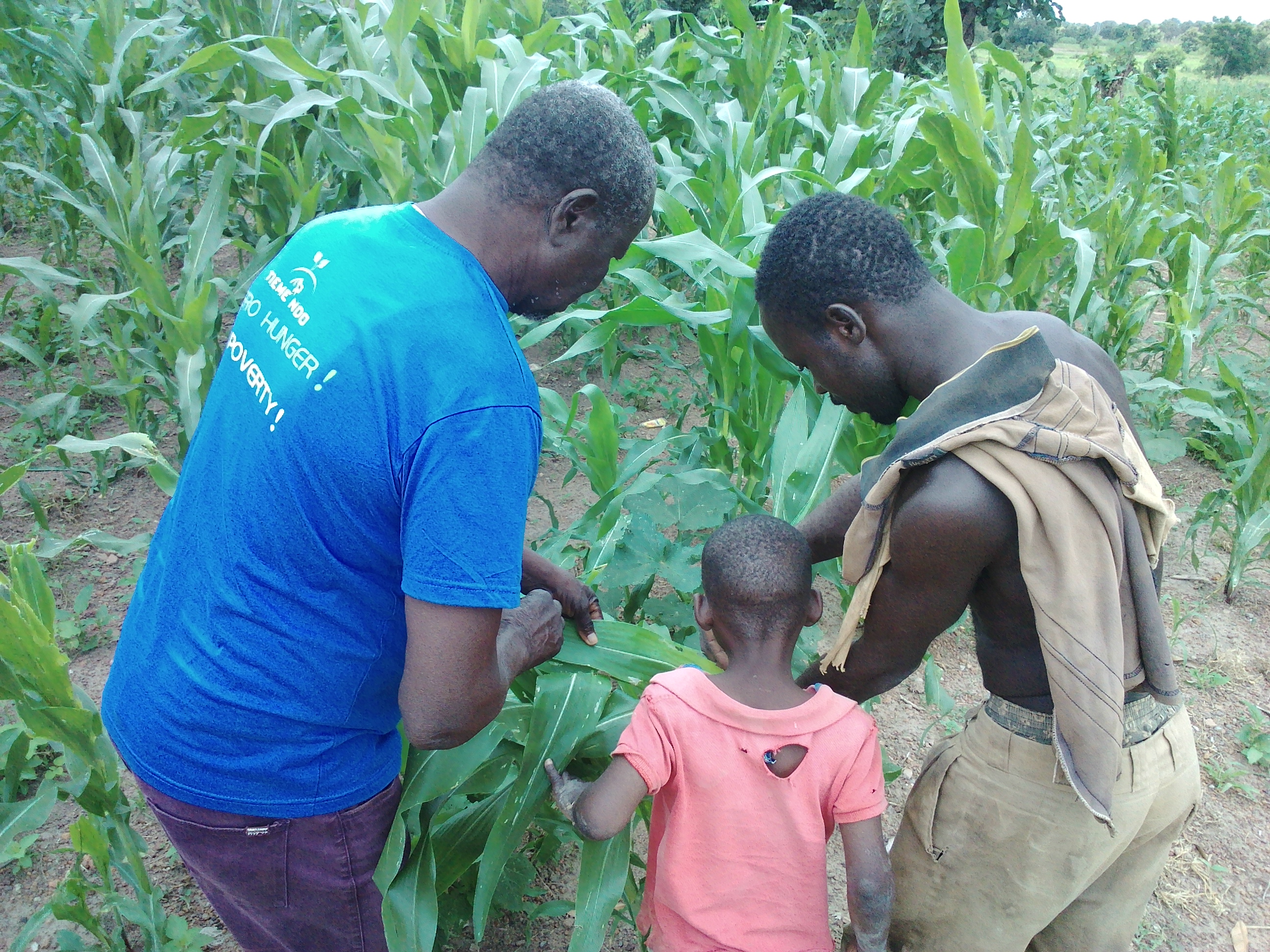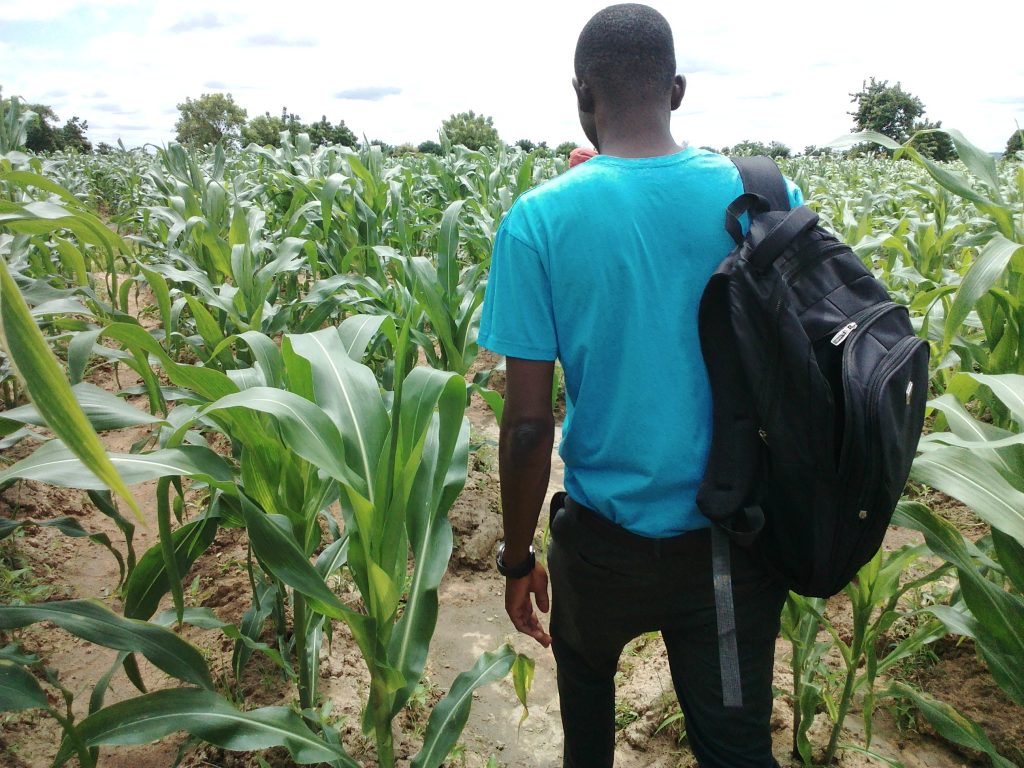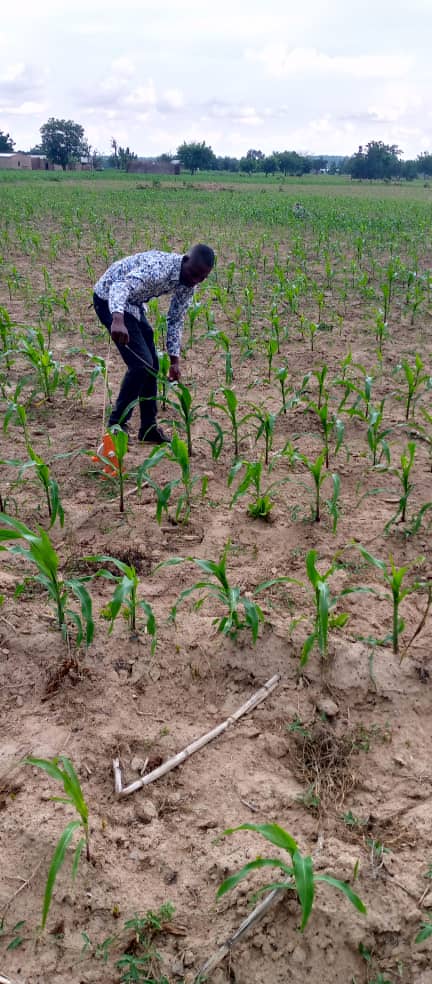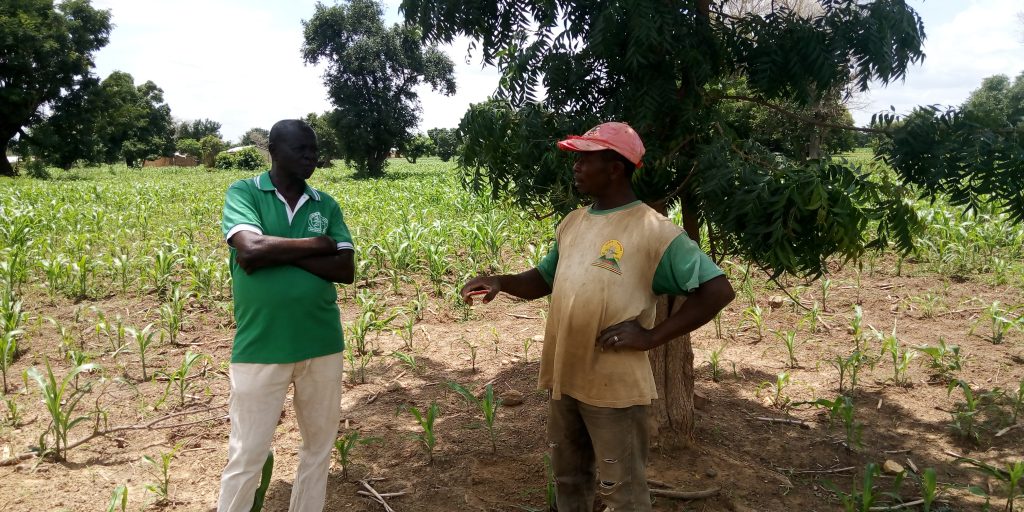
Why Do Farmers Need the Service of an Extension Officer?
For years now, the provision of extension services to farmers has been a challenge in Africa, for that matter Ghana. In Ghana for example the extension officer to farmer ratio is as high as 1:1500 farmers. This means, only one extension officer is responsible to visit the farms of 1500 farmers. If the farmer has at least two acres of land, the extension officer needs to visit about 4500 farmers within three to four months. This is impossible to do and that has been the problem in Ghana. Majority of the farmers do not receive training and field visits from extension officers. As such farmers either misuse the farm inputs bought with their meager income or are stuck with a minor problem that they do not know the way forward. In this post, I decided to write on two reasons why every farmer in Ghana or Africa deserves to be visited at least once every cropping season. This is based on my experience working with Tieme Ndo where I organize training and field visit to our farmers.

First, extension service is a form of proofreading the work of the farmer. Just like completing your final school project which needs proofreading from a supervisor or a colleague, farming also needs a proofread from someone. In 2019, I visited one of our farmer cooperatives to see how the farmers were doing on their individual farms. To the best of my knowledge and the group’s chairperson, we believed we had visited every farmer within the cooperative. Surprisingly, at the end of the farming season during our annual farmers’ forum in December 2019, one of the farmers lamented badly for us ignoring him and not visiting his farm. According to the farmer, he believed he would have won the overall best farmer if we had visited his farm. Getting the award was not the most important thing to this farmer, but being visited on his farm to see his work and provide feedback. From my experience, farmers always want and are happy to know how they are doing on their farms. They want to know if they are doing the right thing or not especially when you train them to plant their crops in a certain way. Hence, they become very disappointed when they do not find anyone to come visit their farms to proofread their work. Farming is risky with so much fears, anxiety and frustrations. So, farmers need someone to look at their work and encourage them or give them hope. Farmers need feedback on their work just like anyone who needs feedback on their performance and I think the extension officers are best suited to offer tailored feedback to our farmers. Unfortunately, the extension officers are inadequate and under resourced to perform this role.

Lastly, extension service is a source of new ideas and perspective to the farmer. In farming, timely and decisive actions are great resources for a productive season. Farmers make big decisions every moment. For example, they need to decide what kind of crop to plant, where to plant, when to plant and when to apply fertilizers. More importantly, they need to decide what to do when the plant is not doing well. These are very important decisions the farmer needs to make and if not done properly, could result in low harvest which could affect the food security of the family. As such, the cropping season is the time farmers mostly need extension services. Such that, when they are stuck with a major decision or a problem, the extension officer who comes with new perspectives could see the problem from a different angle and be able to advise or suggest appropriate steps the farmer could take to resolve the problem. Farmer groups are potential source of ideas and perspective but that too is not adequate without expert advice. Often, farmers within the same group face similar challenges and are therefore unable to find solutions to their issues. Hence, the need for an expert advise.

I agree the government has limited resources to deploy adequate extension officers to train and visit farmers. However, NGOs, companies and dealers in agricultural inputs should take it as a responsibility to visit the farmers they serve. Tieme Ndo is already taking the lead in training farmers on the 4R Nutrient Management Principles. We visit our farmers at least three times every farming season. We do not compromise on our field visits because, we believe that is the only way to keep farmers motivated and willing to invest their time and resources to produce enough to feed the nation.
The government is not recruiting in the agric but every year they recruit in other sectors,but they don’t think of agric
In fact, farmers and agric officers should be referred to as “food security officers” and should be treated as security forces of our nation. Hence, annual recruitment and training of officers as “food security officers”.
Great contribution. The extension agent-farmer ratio of 1:1500 is alarming, This why the collaboration by Farm Radio International International, the Ministry of Food and Agriculture and a number of radio station to use radio and other digital tools to complement the work of few extension officers should be encouraged.
Digital technology is an effective tool for disseminating information to farmers regarding best practices. However, that is not a substitute for an extension officer but a complement to the efforts of the extension officer. Being there with the farmer on the farm to observe the reality of the issues on his farmer is imperative to providing tailored advice
They serve as teachers of new technologies,as well as guide and councillors to the farmers for improvement of our production.
Well said
All well said. I only hope the industry players shall take action
Very urgent action is needed
I think Extension Workers also learn from farmers as they visit various farms: It’s a two-way affair.
Exactly!